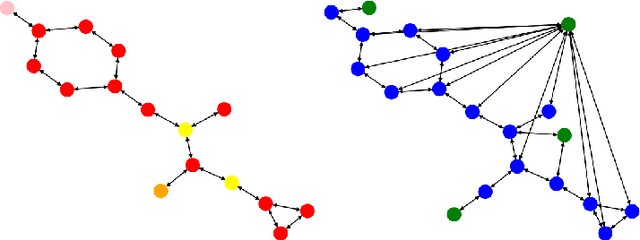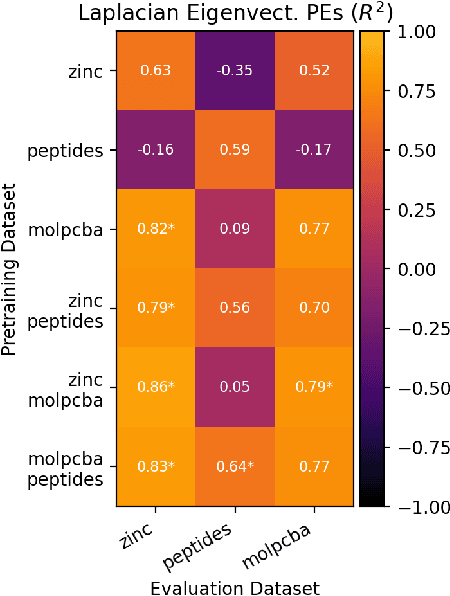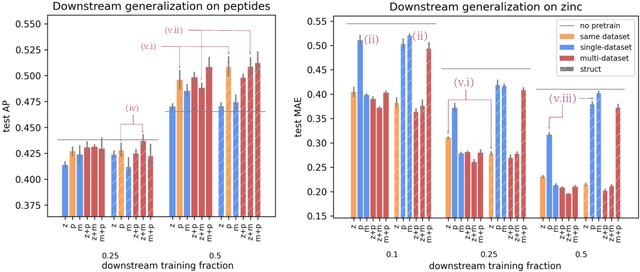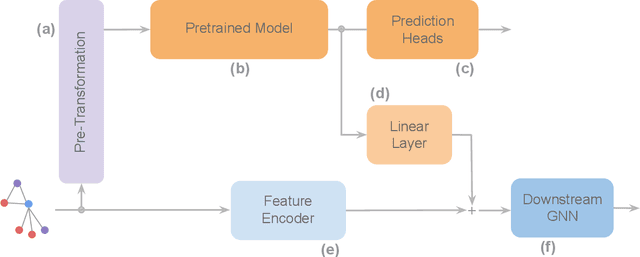Fabian Jogl
Graph Representational Learning: When Does More Expressivity Hurt Generalization?
May 16, 2025Abstract:Graph Neural Networks (GNNs) are powerful tools for learning on structured data, yet the relationship between their expressivity and predictive performance remains unclear. We introduce a family of premetrics that capture different degrees of structural similarity between graphs and relate these similarities to generalization, and consequently, the performance of expressive GNNs. By considering a setting where graph labels are correlated with structural features, we derive generalization bounds that depend on the distance between training and test graphs, model complexity, and training set size. These bounds reveal that more expressive GNNs may generalize worse unless their increased complexity is balanced by a sufficiently large training set or reduced distance between training and test graphs. Our findings relate expressivity and generalization, offering theoretical insights supported by empirical results.
Towards Foundation Models on Graphs: An Analysis on Cross-Dataset Transfer of Pretrained GNNs
Dec 23, 2024



Abstract:To develop a preliminary understanding towards Graph Foundation Models, we study the extent to which pretrained Graph Neural Networks can be applied across datasets, an effort requiring to be agnostic to dataset-specific features and their encodings. We build upon a purely structural pretraining approach and propose an extension to capture feature information while still being feature-agnostic. We evaluate pretrained models on downstream tasks for varying amounts of training samples and choices of pretraining datasets. Our preliminary results indicate that embeddings from pretrained models improve generalization only with enough downstream data points and in a degree which depends on the quantity and properties of pretraining data. Feature information can lead to improvements, but currently requires some similarities between pretraining and downstream feature spaces.
Expectation-Complete Graph Representations with Homomorphisms
Jun 09, 2023Abstract:We investigate novel random graph embeddings that can be computed in expected polynomial time and that are able to distinguish all non-isomorphic graphs in expectation. Previous graph embeddings have limited expressiveness and either cannot distinguish all graphs or cannot be computed efficiently for every graph. To be able to approximate arbitrary functions on graphs, we are interested in efficient alternatives that become arbitrarily expressive with increasing resources. Our approach is based on Lov\'asz' characterisation of graph isomorphism through an infinite dimensional vector of homomorphism counts. Our empirical evaluation shows competitive results on several benchmark graph learning tasks.
 Add to Chrome
Add to Chrome Add to Firefox
Add to Firefox Add to Edge
Add to Edge